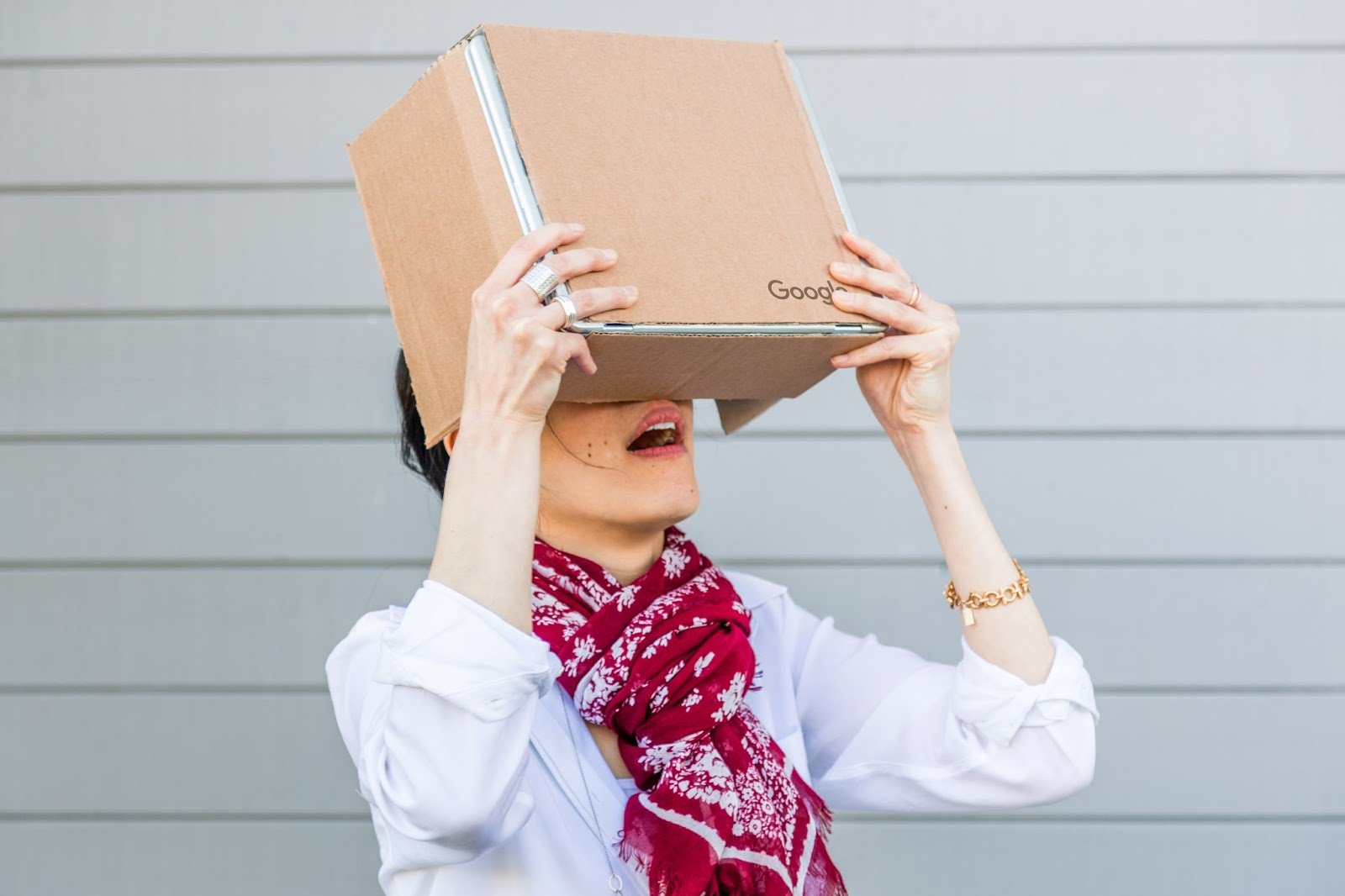Four years later and these mock VR devices still have us scratching our heads.
Happy April Fools Day! If you’re reading this the day of its publication, kudos to you for venturing onto the internet during one of the most untrustworthy days of the year. April 1st is a time for light-hearted, pranking, outrageous fake announcements, and of course, an opportunity to fool consumers with impossible products.
The VR industry is no exception to the festivities. Despite a relatively short existence, the modern VR community has managed to already develop a strong April Fools Day Tradition of fake products and misleading announcements. In honor of today’s celebration, we thought it’d be nice to take a stroll down memory lane and recount some of the industries best, most outrageous “reveals” of the past four years. Below is just a small sample of some of the many attempts developers and companies have made to dupe VR consumers.
Back in April 2015, Oculus was a long ways away from its current position as one of VR’s most influential organizations. The company had only recently been acquired by Facebook and was still in the process of prepping the Oculus Rift for its 2016 launch.
Despite not even having launched, developers still managed to find ways to fool consumers with outrageous announcements. Pawculus Rift, in particular, was an incredibly bizarre April 1st joke that convinced fans a canine-focused VR gaming platform was on the way. Teased by brand experience agency Cramer, the Pawculus Rift promised to instant;y transport your best friend to some of their favorite locations, from the park to the toilet.
Equally as ridiculous was UniVRsity, a fake VR simulation app that promised to take you back to your heydays on your college campus. The program would allow you to relive some of your favorite collegiate moments, from basement frat parties to running from the police after underage house parties. Bonus points for an appearance by Jon Rudnitsky, who would eventually go on to become a featured player on SNL.
In 2017, the community stepped up its game with more elaborate jokes, some of which we would love to have actually seen brought to life. One of these hoaxes was ThinkGeek’s ‘VR Sensory Immersion Generator.’
Arguably the most hard-to-believe example featured on this list, the VR Sensory Immersion Generator featured a selection of peripheral attachments that promised to enhance the immersion of virtually any VR experience. This included everything from a scent diffuser and program/intensity selector, to a mechanical cat arm and high-pressure hose.
While one person was immersed, the other would operate the immersion generator, cycling through a massive catalog of immersion enhancement tools via a digital touchpad.
Google was also advertising their own haptic solution at the time, Haptic Helpers, which assigned a group of helpful Google employees to each VR user in order to ensure maximum immersion throughout their experiences, no matter what the cost.

Image Credit: Google
Then there’s the Chromebook Cardboard. Building off the success of their Google Cardboard initiative, Chromebook Cardboard would take the program to new heights, allowing owners to use their Chromebooks as a window to new worlds.
Chromebook owners could create their peripheral using cardboard from large appliances and pizza boxes, because bigger is always better, right?
With April Fools Day 2019 still in full swing, there’s no doubt in my mind we’ll be seeing several VR-related goofs throughout the rest of the afternoon. Against Gravity, creators of the popular social VR platform Rec Room, have already participated in this year’s festivities with the announcement of Rec Room Care Center–a VR daycare center designed specifically for younger users– as well as the removal of VR functionality from their game entirely (*wink* *wink*).
They’ve even managed to port the entire experience to Apple Watch, cross-platform play included!
The post Our Favorite April Fools Day VR Announcements appeared first on VRScout.
from VRScout https://ift.tt/2UbeNN9
via IFTTT
No comments:
Post a Comment